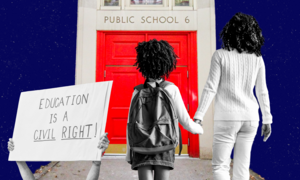Talking With Children About the Hard History of Slavery in the United States
The relaunch of the Teaching Hard History podcast series reminds us that discussing the history of slavery in the United States in age-appropriate ways can help young people understand how that history influences life today. Slavery is the institution that made racism a part of our nation’s foundation, and the legacy of slavery is present in many current systems that disproportionately affect Black children and families. If we are to build a more positive future together, learning this history is essential for healing and reconciliation.
- Teaching Hard History: Grades K-5
- Celebrating African and Indigenous Cultures
- Talking to Children About the History of Slavery in the United States

